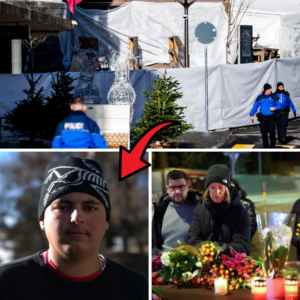Elon Musk, the billionaire trailblazer behind Tesla, SpaceX, and X, is accustomed to polarizing opinions, but few moments have captured his ability to navigate controversy as vividly as his appearance at a Dave Chappelle comedy show in San Francisco on December 11, 2022. When Musk took the stage at the Chase Center, he was met with a chorus of boos from the 18,000-strong crowd, a reaction that stunned both him and Chappelle. Yet, Musk’s response—marked by a mix of awkward humor, defiance, and a surprising quip—eventually turned the tide, leaving the audience momentarily speechless. This article explores the incident, its context, Musk’s handling of the situation, and what it reveals about his public persona in an era of intense scrutiny.
The Incident: A Hostile Reception
The event unfolded during a joint comedy tour stop by Dave Chappelle and Chris Rock at San Francisco’s Chase Center. Near the end of the show, Chappelle introduced Musk with a flourish, declaring, “Ladies and gentlemen, make some noise for the richest man in the world!” What followed was not the warm welcome Musk might have expected. Videos posted on social media captured a wave of boos drowning out scattered cheers, with the jeering lasting nearly five minutes. Audience member James Yu estimated that “a good 80% of the stadium” booed, describing Musk as “withering” under the pressure, “like absolutely turning into a corncob.”
Musk, wearing an “I Love Twitter” shirt, initially raised his arms in a gesture of triumph, seemingly caught off-guard by the crowd’s hostility. The booing intensified as he paced the stage, microphone in hand, unsure of how to respond. Chappelle, a seasoned performer, attempted to defuse the situation with humor, joking, “It sounds like some of the people you fired are in the audience,” a reference to Musk’s recent layoffs of nearly half of Twitter’s workforce following his $44 billion acquisition of the platform in October 2022. At one point, Chappelle urged Musk not to speak, saying, “Don’t say nothing. You hear that sound, Elon? That’s the sound of pending civil unrest.”
Despite the hostile reception, Musk seized a moment to deliver a line from Chappelle’s iconic Chappelle’s Show sketch, shouting, “I’m rich, b***h!”—a reference to the comedian’s famous Rick James impression. The crowd’s reaction was mixed: some laughed, others booed louder, and the stadium’s sound team reportedly honked a horn to drown out the jeers. But it was Musk’s next move that shifted the dynamic. As the booing persisted, he quipped, “Weren’t expecting this, were you?” followed by, “Times like this, I think we’re in a simulation. Like, how can this be real?” The unexpected philosophical remark, delivered with a smirk, elicited a ripple of laughter and a brief pause in the booing, as if the crowd was momentarily disarmed by his audacity.
The Context: Why the Boos?
The intense reaction to Musk’s appearance was rooted in a confluence of factors. San Francisco, a progressive hub and the home of Twitter’s headquarters, was still reeling from Musk’s chaotic takeover of the platform. After purchasing Twitter for $44 billion, Musk laid off thousands of employees, issued ultimatums for remaining staff to commit to a “hardcore” work culture, and reversed the company’s remote work policy. These moves alienated many in the Bay Area, where Twitter had been a major employer. Audience members interviewed by NBC News cited the layoffs as a primary reason for booing, with one attendee, Jason, noting Musk’s “smirk” as a trigger for his disapproval.
Musk’s recent actions further fueled the crowd’s discontent. Just hours before the show, he tweeted that his “pronouns are Prosecute/Fauci,” a jab at both Dr. Anthony Fauci and transgender pronoun usage that aligned him with far-right rhetoric. He also falsely suggested that Twitter’s former trust and safety executive, Yoel Roth, advocated for child sexualization, echoing QAnon conspiracy tropes and subjecting Roth to online abuse. These statements, combined with Musk’s pre-election call for followers to vote Republican, clashed with San Francisco’s liberal ethos, making his appearance at a comedy show—already a progressive-leaning venue—particularly ill-timed.
Chappelle’s own controversies added another layer. The comedian had faced backlash for transphobic jokes in his 2021 Netflix special The Closer, and his decision to invite Musk, a figure increasingly associated with conservative causes, seemed tone-deaf to some fans. Attendee Chris Douglas told Rolling Stone that the booing felt like “the Chase Center turned into the Apollo,” referencing the famously tough crowds at the Harlem theater. The presence of Chris Rock, another headliner with a history of controversial humor, further amplified the charged atmosphere.
Musk’s Response: Defiance and Spin
Musk’s handling of the moment was a study in his characteristic blend of bravado and deflection. His “I’m rich, b***h” quip, while awkward, showed his willingness to lean into the crowd’s perception of him as a billionaire caricature. The simulation comment, however, was a masterstroke of redirection, invoking his penchant for philosophical musings about reality and artificial intelligence—a hallmark of his public persona. The brief pause in the booing suggested that some in the crowd were caught off-guard, perhaps amused by his ability to pivot from embarrassment to existential humor.
The next day, Musk took to Twitter to downplay the incident, claiming the crowd’s reaction was “90% cheers & 10% boos (except during quiet periods).” He added, “It’s almost as if I’ve offended SF’s unhinged leftists … but nahhh,” framing the booing as the work of a vocal minority. This revisionist narrative drew skepticism, with attendees like Jason asserting that the booing “drowned out” any cheers. Musk later deleted the tweet, possibly in response to online mockery, but his attempt to spin the event reflected his broader strategy of controlling the narrative on his platform.
Reports later surfaced that the incident deeply affected Musk. Ben Mezrich, author of Breaking Twitter, claimed in a 2024 CNBC interview that Musk suffered a “mental breakdown” after the event, locking himself in his office and prompting Twitter employees to consider a wellness check by the San Francisco police. Mezrich suggested that the booing, combined with other pressures like a confrontation involving his son X Æ A-12 and a stalker, marked the beginning of a “downward spiral” for Musk, who was “shocked” by the damage to his reputation as a tech visionary.
The Broader Implications
The Chase Center incident was more than a fleeting moment of public humiliation; it underscored the shifting tides of Musk’s public image. Once celebrated as a Silicon Valley icon for his work with Tesla and SpaceX, Musk’s foray into Twitter’s ownership and his embrace of conservative rhetoric alienated many in the tech community. The Guardian noted that appearing before a progressive audience in San Francisco, especially after a weekend of inflammatory tweets, was “ill-advised.” The booing reflected not just personal dislike but frustration with Musk’s layoffs, his handling of Twitter’s content moderation, and his alignment with controversial causes.
The event also highlighted the power of public spaces to challenge even the most influential figures. Musk, who thrives on Twitter’s echo chambers, faced a real-world rebuke that he couldn’t mute or block. His simulation quip, while effective in momentarily silencing the crowd, couldn’t erase the underlying discontent. The Washington Post described the cameo as “doomed,” questioning whether Musk intended it as comedy, commentary, or provocation. The fact that Chappelle’s fans—many of whom shared his own controversial views—rejected Musk underscored the depth of his fall from grace in liberal circles.
For Musk, the incident was a rare moment of vulnerability. His wealth, estimated at $424.7 billion in May 2025 by Forbes, and his control of X, Tesla, and SpaceX afford him immense power, yet the booing exposed the limits of that influence. His response—blending humor, defiance, and a quick pivot to philosophy—revealed his ability to adapt under pressure, a trait that has defined his career. However, the reported emotional toll, as described by Mezrich, suggests that the boos struck a deeper chord, challenging Musk’s self-image as a beloved innovator.
The Legacy of the Moment
The Chase Center booing remains a pivotal moment in Musk’s public narrative, illustrating the risks of his increasingly polarizing persona. His ability to silence the crowd with a single line about living in a simulation was a testament to his quick thinking, but it couldn’t fully salvage the moment. The incident fueled discussions about wealth, power, and accountability, with PBS News noting that Musk’s brief attempt at customer service humor (“Twitter customer service here”) and his handshake with performers showed an effort to regain favor, even as the boos persisted.
For the public, the event was a reminder of Musk’s dual identity: a visionary pushing humanity toward Mars and a controversial figure whose actions often provoke backlash. As he continues to shape industries and influence global discourse, the memory of that San Francisco night—when a crowd’s boos were briefly silenced by a billionaire’s wit—serves as a snapshot of a man navigating the fine line between adulation and disdain.
Conclusion
Elon Musk’s booing at Dave Chappelle’s San Francisco show was a moment of high drama that encapsulated the complexities of his public life. The crowd’s hostility, rooted in his Twitter layoffs and inflammatory rhetoric, met with Musk’s awkward yet bold response, culminating in a quip that briefly hushed the jeers. While the incident dented his reputation, as reported by Mercury News, it also showcased his resilience in the face of adversity. As Musk continues to lead Tesla, SpaceX, and X, the Chase Center moment remains a vivid reminder that even the world’s richest man cannot escape the judgment of a crowd—or the power of a well-timed comeback to steal the spotlight.





